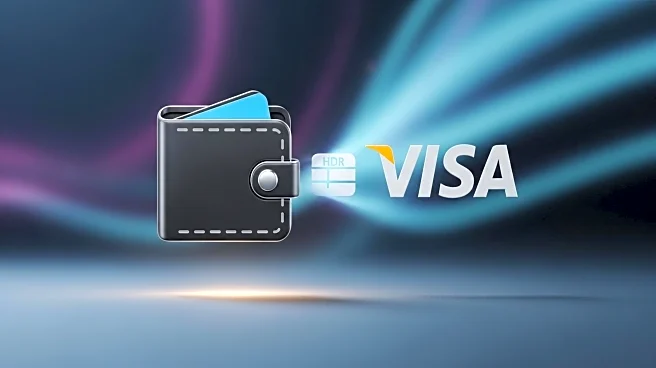What's Happening?
Onafriq, an African digital payments network, has partnered with Visa to introduce Visa Pay, a cloud-native Payments-as-a-Service platform in the Democratic Republic of Congo (DRC). This initiative aims to broaden digital financial access by allowing consumers to fund their Visa Pay wallets directly from mobile money channels such as M-Pesa, Airtel Money, and Orange Money. The partnership leverages Onafriq's APIs to facilitate mobile money collections and disbursements from millions of wallets across the DRC, with Visa's card network acting as a bridge. Sophie Kafuti, GM of Visa in the DRC, emphasized the creation of an interoperability foundation to boost digital commerce adoption. Christian Bwakira, Onafriq's chief commercial officer, highlighted the potential for innovation and financial inclusion across Africa.
Why It's Important?
The launch of Visa Pay in the DRC is significant as it addresses the growing demand for interoperable digital financial solutions in Africa. By integrating Visa's global network with Onafriq's local expertise, the partnership aims to enhance financial inclusion and stimulate digital commerce. This development is particularly crucial in the DRC, where mobile payments are projected to reach $3.85 billion in transaction value this year, according to GSMA data. The initiative could lead to increased economic activity and provide a model for similar expansions in other African markets, where mobile money adoption is high.
What's Next?
The partnership between Onafriq and Visa sets the stage for Visa Pay's expansion beyond the DRC into other African countries. As mobile money adoption continues to rise, the demand for interoperable digital-first solutions is expected to accelerate. This expansion could further drive financial inclusion and digital commerce across the continent, potentially influencing policy decisions and encouraging other financial institutions to explore similar collaborations.
Beyond the Headlines
The introduction of Visa Pay in the DRC could have broader implications for the region's financial ecosystem. By fostering interoperability, the partnership may encourage more businesses and government entities to adopt digital payment solutions, potentially reducing reliance on cash transactions. This shift could lead to increased transparency and efficiency in financial operations, contributing to economic growth and stability in the region.











